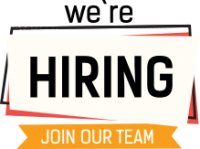
The 10 Biggest Job Interview Mistakes
The job interview can be one of the most important gateways to a new career. But passing through it can be more than a little stressful. How do you make a great first impression that will get you an offer? To avoid these 10 common—but easily avoidable—mistakes and put your best foot forward DON’T:.
1. Skip Your Homework Before the Job Interview
Can you even imagine someone going on an interview without researching the job or the company? It happens. Before your interview, do your homework. Research the company and re-read the job posting. The interviewers will want to know why you want to work for them. If you don’t do your homework on this question, it looks like you’re just looking for any job and not necessarily this job. You’ll also want to get a sense of the culture and what the company offers employees in case you do get the job.
2. Neglect to Prep for the Interview
Although you won’t know exactly what you’ll be asked, you can prepare answers for common job interview questions ahead of time so you don’t freeze up during the interview. Ask a friend or family member if they can run through questions and answers with you. Or consult with your college’s Career Services office to find out if they conduct mock interviews.
3. Arrive Late to the Interview
When you arrive late to a job interview, it sends a few red flags to the interviewers right away. It shows that you don’t value others’ time as much as your own, which can make the interviewers think that you’re not a team player. It also suggests that you don’t have strong time management skills or may not be able to pay attention to details.
Plan to arrive at least 15 minutes ahead of your interview. If you arrive too early, you can always run through your answers again before you go in or find a spot in a waiting room. But you want to build in enough time to accommodate commuter issues like heavy traffic or road detours. You should also research the directions ahead of time and find out the best way to get there and if you should use a specific entrance to the building.
4. Dress Inappropriately
The way you dress in an interview speaks to your professionalism. It’s important to present a groomed appearance, even if the dress code of this workplace is more casual. If you get the job, they’ll instruct on what you can and can’t wear, but during the interview, you need to play it safe. Here are some tips on what and what not to wear:
- Do: Wear black slacks and a button-up shirt, or a knee-length black dress, unless you’re advised to wear specific attire during the interview.
- Don’t: Wear clothing that looks sloppy, tight, or revealing
- Do: Wear dress shoes.
- Don’t: Wear flashy or gaudy jewelry.
- Do: Make sure your hair is clean, brushed, and neat.
- Don’t: Wear too much makeup, perfume, or cologne.
Even if your job interview is conducted remotely, you still need to dress professionally.
5. Forget to Bring the Appropriate Materials
You should always bring copies of your resume with you, even if the interviewers have already printed their own copies. It’s a sign of professionalism, and it shows that you’re thoughtful and prepared. What other materials should you bring? Did the employer ask for a short presentation? If so, don’t forget to prepare it and don’t leave it behind. If you have a portfolio, bring that as well, especially if the employer asked to see it. It’s better to have it with you and not use it than for the employer to ask for samples of your work that you can’t provide.
6. Project Negative Energy During the Job Interview
The interviewers will pick up on your energy and if it’s too low or too high, it could dissuade them from hiring you. If your energy is too low, it looks like you don’t have a positive attitude, or that you aren’t enthusiastic about the job. Too much energy can come across as fake or inauthentic. Smile, offer a firm handshake, and be friendly but professional.
7. Talk too Much About Yourself
The job interview is a great way for the employer to get to know you. But they don’t need to know everything about you. What an employer wants to know is how you’ll help them. So, focus on how your skills can benefit the company and not why you desperately need a job.
8. Badmouth Former Employers
You may not care for your current or former boss, but don’t speak badly of them in a job interview. It doesn’t make them look bad. In fact, it makes you look like someone who is hard to get along with, or that you don’t understand the importance of teamwork.
9. Skip the Opportunity Ask Job Questions
When the interviewers ask if you have any questions for them, you should always say yes. Ask about the company’s culture and what the interviewers like about working there. Be careful not to ask questions about salary and promotions right off the bat—it could look like all you’re interested in is money. And don’t be afraid to ask for the job. Employers want to know that you want to work for them. Reiterate the fact that you’re enthusiastic about the position and that you really want to join the team.
10. Forget to Follow Up After the Job Interview
After the interview, be sure to follow up with a thank-you email. If you don’t have the contact information of every person who interviews you, you can still send an email to the person you communicated with initially and ask them to pass it on. This shows that you are truly interested in the position and grateful for the opportunity to interview for it.
Need help preparing for the job interview? At Porter and Chester Institute in Connecticut and Massachusetts, all of our students and alumni have access to our Career Services Department, which offers mock interviews as well as resume workshops. Fill out the form to find out how we can support your journey to a new career.






